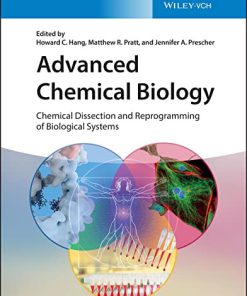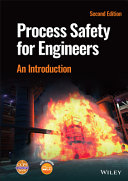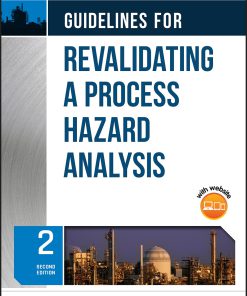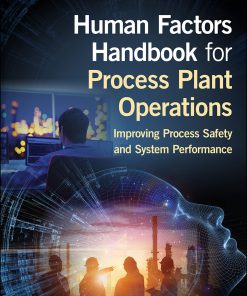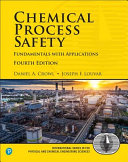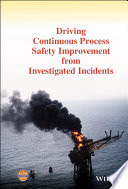Advanced Chemical Process Control 1st Edition by Morten Hovd ISBN 9783527352234 3527352236
$50.00 Original price was: $50.00.$25.00Current price is: $25.00.
Advanced Chemical Process Control 1st Edition by Morten Hovd – Ebook PDF Instant Download/Delivery: 9783527352234 ,3527352236
Full download Advanced Chemical Process Control 1st Edition after payment

Product details:
ISBN 10: 3527352236
ISBN 13: 9783527352234
Author: Morten Hovd
Process control is an area of study which seeks to optimize industrial processes, applying different strategies and technologies as required to navigate the variety of processes and their many potential challenges. Though the body of chemical process control theory is robust, it is only in recent decades that it has been effectively integrated with industrial practice to form a flexible toolkit. The need for a guide to this integration of theory and practice has therefore never been more urgent.
Advanced Chemical Process Control meets this need, making advanced chemical process control accessible and useful to chemical engineers with little grounding in the theoretical principles of the subject. It provides a basic introduction to the background and mathematics of control theory, before turning to the implementation of control principles in industrial contexts. The result is a bridge between the insights of control theory and the needs of engineers in plants, factories, research facilities, and beyond.
Advanced Chemical Process Control readers will also find:
- Detailed overview of Control Performance Monitoring (CPM), Model Predictive Control (MPC), and more
- Discussion of the cost benefit analysis of improved control in particular jobs
- Authored by a leading international expert on chemical process control
Advanced Chemical Process Control is essential for chemical and process engineers looking to develop a working knowledge of process control, as well as for students and graduates entering the chemical process control field.
Advanced Chemical Process Control 1st Edition Table of contents:
I.1 Why Is Chemical Process Control Needed?
I.2 What Knowledge Does a chemical Process Control Engineer need?
I.3 What Makes Chemical Process Control Unique?
I.4 The Structure of Control Systems in the Chemical Process Industries
I.5 Notation
Notes
1 Mathematical and Control Theory Background
1.1 Introduction
1.2 Models for Dynamical Systems
1.3 Analyzing Linear Dynamical Systems
1.4 Poles and Zeros of Transfer Functions
1.5 Stability
Problems
References
Notes
2 Control Configuration and Controller Tuning
2.1 Common Control Loop Structures for the Regulatory Control Layer
2.2 Input and Output Selection
2.3 Control Configuration
2.4 Tuning of Decentralized Controllers
Problems
References
Notes
3 Control Structure Selection and Plantwide Control
3.1 General Approach and Problem Decomposition
3.2 Regulatory Control
3.3 Determining Degrees of Freedom
3.4 Selection of Controlled Variables
3.5 Selection of Manipulated Variables
3.6 Selection of Measurements
3.7 Mass Balance Control and Throughput Manipulation
Problems
References
Notes
4 Limitations on Achievable Performance
4.1 Performance Measures
4.2 Algebraic Limitations
4.3 Control Performance in Different Frequency Ranges
4.4 Bounds on Closed‐Loop Transfer Functions
4.5 ISE Optimal Control
4.6 Bandwidth and Crossover Frequency Limitations
4.7 Bounds on the Step Response
4.8 Bounds for Disturbance Rejection
4.9 Limitations from Plant Uncertainty
Problems
References
Notes
5 Model‐Based Predictive Control
5.1 Introduction
5.2 Formulation of a QP Problem for MPC
5.3 Step‐Response Models
5.4 Updating the Process Model
5.5 Disturbance Handling and Offset‐Free Control
5.6 Feasibility and Constraint Handling
5.7 Closed‐Loop Stability with MPC Controllers
5.8 Target Calculation
5.9 Speeding up MPC Calculations
5.10 Robustness of MPC Controllers
5.11 Using Rigorous Process Models in MPC
5.12 Misconceptions, Clarifications, and Challenges
Problems
References
Notes
6 Some Practical Issues in Controller Implementation
6.1 Discrete‐Time Implementation
6.2 Pure Integrators in Parallel
6.3 Anti‐Windup
6.4 Bumpless Transfer
Problems
References
7 Controller Performance Monitoring and Diagnosis
7.1 Introduction
7.2 Detection of Oscillating Control Loops
7.3 Oscillation Diagnosis
7.4 Plantwide Oscillations
7.5 Control Loop Performance Monitoring
7.6 Multivariable Control Performance Monitoring
7.7 Some Issues in the Implementation of Control Performance Monitoring
7.8 Discussion
Problems
References
Notes
8 Economic Control Benefit Assessment
8.1 Optimal Operation and Operational Constraints
8.2 Economic Performance Functions
8.3 Expected Economic Benefit
8.4 Estimating Achievable Variance Reduction
8.5 Worst‐Case Backoff Calculation
References
Note
A Fourier–Motzkin Elimination
B Removal of Redundant Constraints
Reference
C The Singular Value Decomposition
D Factorization of Transfer Functions into Minimum Phase Stable and All‐Pass Parts
D.1 Input Factorization of RHP Zeros
D.2 Output Factorization of RHP Zeros
D.3 Output Factorization of RHP Poles
D.4 Input Factorization of RHP Poles
D.5 SISO Systems
D.6 Factoring Out Both RHP Poles and RHP Zeros
Reference
E Models Used in Examples
E.1 Binary Distillation Column Model
E.2 Fluid Catalytic Cracker Model
References
Note
Index
People also search for Advanced Chemical Process Control 1st Edition:
advanced process control in chemical industry
advanced process control and simulation for chemical engineers
advanced control techniques
what is chemical control
advanced process control engineer
Tags: Morten Hovd, Advanced Chemical, Process Control
You may also like…
Biology and other natural sciences - Molecular
Technique - Safety and Security
Process Safety for Engineers : An Introduction 2nd Edition Ccps (Center For Chemical Process Safety)
Uncategorized
Guidelines for Revalidating a Process Hazard Analysis Ccps (Center For Chemical Process Safety)
Technique - Safety and Security
Engineering - Chemical Engineering
Uncategorized



